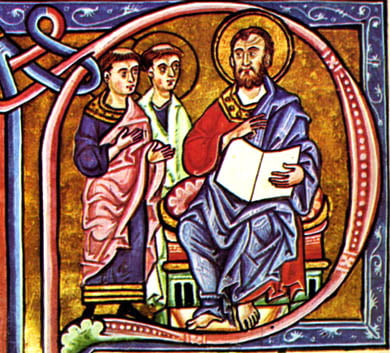Category: Biblical worldview
-

Preparing Students to Engage the World
One goal of a Christian education ought to be to prepare students to engage the world from a Christian perspective. That is, Christian educators should seek to prepare students to navigate life outside the school walls–the ideas, customs, practices, and expectations of the world around them–as followers of Jesus Christ. Each cultural time period generates…
-

Gifted to Serve: Spiritual Gifting and High School Students
The Via Sabaste was a Roman road that cut through the heart of Asia Minor, bringing traffic of all sorts through the small town of Lystra. Well-formed routes such as this enabled the rapid expansion of the church in the first century. Despite the ease of travel, Paul’s first visit to Lystra could not have…
-

Discipleship in the School, Part 2: Spiritual Formation
In my first article in this series, I explored the idea of discipleship and what it means for the Christian school to make disciples. I noted from the offset that the Christian school and local church have different purposes, and therefore, we should expect their discipleship approaches to look different. At the same time, both…
-

Discipleship in the School, Part 1: An Introduction
What is discipleship and how does discipleship happen in a Christian school? Like most good questions, we must begin by defining our terms. What is discipleship? According to Mark Dever, a pastor in the Washington D.C. area, we can define discipleship simply as helping someone follow Jesus. As an expanded definition, he writes that discipleship…
-

Counsels of the Wise, Part 9: The Limits and Transcendence of Prudence
We have come full circle in this series on Aristotle’s intellectual virtue of prudence or practical wisdom. Prudence is one of those forgotten gems of the classical educational tradition. Its proper flowering is the result of early instruction, long reflection and the blooming of rationality in man. Discipline, early training in habits, examples and good…
-

Preserving the Inheritance: Christian Education in the Post-Christian West
In The Air We Breathe (The Good Book Company, 2022), author Glen Scrivener explains how western society came to believe in the core values we now take for granted: equality, compassion, consent, enlightenment, science, freedom, and progress. He contends that belief in these values is not self-evident, trans-cultural, or historically necessary. So where did these…
-

The Incarnation of Jesus and Incarnational Ministry in the Classroom
It’s at this time of year that we cultivate a sense of the incarnation with the buildup to the Christmas holiday. We see lots of decorations. There are school performances and church pageants. Our routines change to accommodate a plethora of Christmas parties. Despite the celebrating and decorating, there’s a deep concern about the commercialization…
-

Paul’s School of Mentorship
Classical school leaders often emphasize the centrality of mentorship in the educational process, particularly in grades 6-12. They have wisely observed that the junior high and high school years are a pivotal phase in a person’s development. As students gradually spend more time with peers in settings without their parents, small yet formative opportunities emerge…
-

Proclaiming the “True Myth”: Tim Keller’s Ministry and Classical Education
I was first exposed to the ministry of Dr. Timothy Keller in college while pursuing a degree in philosophy and reading through the western canon of Great Books. Immersed in the intersection of Christian discipleship and the life of the mind, I found in Keller a comforting voice that resonated with many of the questions…
-

Why Classical Education Needs a Theology of Wisdom: A Foundation for Wise Integration in the Modern World
The modern world of education is characterized by the opposites of integration: isolation and reductionism. Colin Gunton, in the 1992 Bampton Lectures at Cambridge, entitled The One, The Three and the Many: God, Creation and the Culture of Modernity, uses the terms, “disengagement” and “fragmentation” to describe the predicament of modernity. The term “disengagement” he…
